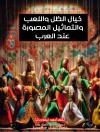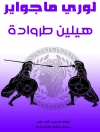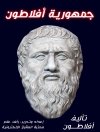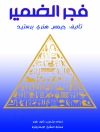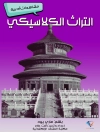This manual pulls together—and illustrates with interesting case studies—the variety of specialized and generalized archaeological research strategies that yield new insights into science. Throughout the book there are templates, consisting of questions, to help readers visualize and design their own projects. The manual seeks to be as general as possible, applicable to any society, and so science is defined as the creation of useful knowledge—the kinds of knowledge that enable people to make predictions. The chapters in Part I discuss the scope of the archaeology of science and furnish a conceptual foundation for the remainder of the book. Next, Part II presents several specialized, but widely practiced, research strategies that contribute to the archaeology of science. In order to thoroughly ground the manual in real-life applications, Part III presents lengthy case studies that feature the use of historical and archaeological evidence in the study of scientific activities.
Innehållsförteckning
PART I.- 1 Introduction.-2 Science: A Behavioral Perspective.- 3 The Varieties of Scientific Knowledge.-PART II.- 4 Experimental Archaeology.- 5 Ethnoarchaeology.- 6 Archaeometry.- PART III .- 7 The Artifacts of Modern and Early Modern Science.- 8 Thomas Edison’s Science.- 9 Colonization and Exploration.- 10 Scientific Expeditions to Antarctica.-11 The U.S. Nuclear Establishment.-12 Archaeology of the Space Age.- 13 Discovery Processes.
Om författaren
Michael Brian Schiffer is the Fred A. Riecker Distinguished Professor in the School of Anthropology at the University of Arizona. During his long professional career, now approaching four decades, he has conducted many and varied studies that have contributed to the approach, construction, and content of this manual. In 1983 he initiated a program of experimental archaeology at the University of Arizona, have published many experiments on ceramic technology, and for nearly 30 years taught a course on experimental archaeology. He has contributed to the theory and method of ethnoarchaeology and supervised several important ethnoarchaeological dissertations. He was also a pioneer in the study of modern material culture. The philosophy of archaeology has also been one of his interests, which has led to a better understanding of the kinds of knowledge that science produces and their relationships to archaeological research. He has published an artifact-based theory of human communication, engaged the recent history of American archaeology, and published copiously on diverse topics of archaeological method and theory. In addition, he has done extensive research on the history of electrical and electronic science and technology, culminating in four books. And he has written a book about the study of technological change in which the role of scientific knowledge looms large; indeed, some of the ideas in that book have loud echoes in the manual. In short, because of his varied interests and eagerness to delve into new subject areas, he is well situated to pull off this manual.


